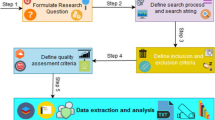Abstract
We revisit the problem of finding \(k\) paths with a minimum number of shared edges between two vertices of a graph. An edge is called shared if it is used in more than one of the \(k\) paths. We provide a \({\lfloor {k/2}\rfloor }\)-approximation algorithm for this problem, improving the best previous approximation factor of \(k-1\). We also provide the first approximation algorithm for the problem with a sublinear approximation factor of \(O(n^{3/4})\), where \(n\) is the number of vertices in the input graph. For sparse graphs, such as bounded-degree and planar graphs, we show that the approximation factor of our algorithm can be improved to \(O(\sqrt{n})\). While the problem is NP-hard, and even hard to approximate to within an \(O(\log n)\) factor, we show that the problem is polynomially solvable when \(k\) is a constant. This settles an open problem posed by Omran et al. regarding the complexity of the problem for small values of \(k\). We present most of our results in a more general form where each edge of the graph has a sharing cost and a sharing capacity, and there is a vulnerability parameter \(r\) that determines the number of times an edge can be used among different paths before it is counted as a shared/vulnerable edge.



Similar content being viewed by others
Notes
The runtime can be slightly improved to \(O({m ^ {2(k-1)}} {n ^ {3}})\) by discarding all cuts with no vulnerable edge in the cut sequences, and hence, by only considering cuts of size less that \(k\), as mentioned in the preliminary version of this work [1].
References
Assadi, S., Emamjomeh-Zadeh, E., Norouzi-Fard, A., Yazdanbod, S., Zarrabi-Zadeh, H.: The minimum vulnerability problem. In: Proceedings of the 23rd International Symposium on Algorithms and Computation, Volume 7676 of Lecture Notes in Computer Science, pp. 382–391 (2012)
Carr, R.D., Fleischer, L.K., Leung, V.J., Phillips, C.A.: Strengthening integrality gaps for capacitated network design and covering problems. In: Proceedings of the 11th ACM-SIAM Symposium on Discrete Algorithms, pp. 106–115 (2000)
Chakrabarty, D., Chekuri, C., Khanna, S., Korula, N.: Approximability of capacitated network design. In: Proceedings of the 15th International Conference on Integer Programming and Combinatoral Optimization, Volume 6655 of Lecture Notes in Computer Science, pp. 78–91 (2011)
Chakrabarty, D., Krishnaswamy, R., Li, S., Narayanan, S.: Capacitated network design on undirected graphs. In: Proceedings of the 16th International Workshop on Approximation Algorithms, Volume 8096 of Lecture Notes in Computer Science, pp. 71–80 (2013)
Even, G., Kortsarz, G., Slany, W.: On network design problems: fixed cost flows and the covering steiner problem. ACM Trans. Algorithms 1(1), 74–101 (2005)
Franklin, M.K.: Complexity and security of distributed protocols. Ph.D. thesis, Depatment of Computer Science, Columbia University (1994)
Garey, M., Johnson, D.S.: Computers and Intractability: A Guide to the Theory of NP-Completeness. W. H. Freeman, San Francisco (1979)
Garg, N., Konjevod, G., Ravi, R.: A polylogarithmic approximation algorithm for the group Steiner tree problem. J. Algorithms 37(1), 66–84 (2000)
Goldberg, A.V., Rao, S.: Beyond the flow decomposition barrier. J. ACM 45(5), 783–797 (1998)
Goldberg, A.V., Tarjan, R.E.: A new approach to the maximum-flow problem. J. ACM 35(4), 921–940 (1988)
Hajiaghayi, M., Khandekar, R., Kortsarz, G., Nutov, Z.: On the fixed cost \(k\)-flow problem and related problems. arXiv:1108.1176 (2011)
Konjevod, G., Ravi, R., Srinivasan, A.: Approximation algorithms for the covering steiner problem. Random Struct. Algorithms 20(3), 465–482 (2002)
Krumke, S.O., Noltemeier, H., Schwarz, S., Wirth, H.-C., Ravi, R.: Flow improvement and network flows with fixed costs. In: Proceedings of the International Conference on Operation Research: OR-98, pp. 158–167 (1998)
Omran, M.T., Sack, J.-R., Zarrabi-Zadeh, H.: Finding paths with minimum shared edges. J. Comb. Optim. 26(4), 709–722 (2013)
Wang, J., Yang, M., Yang, B., Zheng, S.Q.: Dual-homing based scalable partial multicast protection. IEEE Trans. Comput. 55(9), 1130–1141 (2006)
Yang, B., Yang, M., Wang, J., Zheng, S.Q.: Minimum cost paths subject to minimum vulnerability for reliable communications. In: Proceedings of the 8th International Symposium on Parallel Architectures, Algorithms and Networks, pp. 334–339. IEEE Computer Society (2005)
Zheng, S.Q., Wang, J., Yang, B., Yang, M.: Minimum-cost multiple paths subject to minimum link and node sharing in a network. IEEE/ACM Trans. Netw. 18(5), 1436–1449 (2010)
Acknowledgments
The authors would like to thank Jörg-Rüdiger Sack and Masoud T. Omran for their valuable discussions on the problem.
Author information
Authors and Affiliations
Corresponding author
Additional information
This research is partially supported by IPM under Grant No. CS1391-4-04.
Rights and permissions
About this article
Cite this article
Assadi, S., Emamjomeh-Zadeh, E., Norouzi-Fard, A. et al. The Minimum Vulnerability Problem. Algorithmica 70, 718–731 (2014). https://doi.org/10.1007/s00453-014-9927-z
Received:
Accepted:
Published:
Issue Date:
DOI: https://doi.org/10.1007/s00453-014-9927-z




